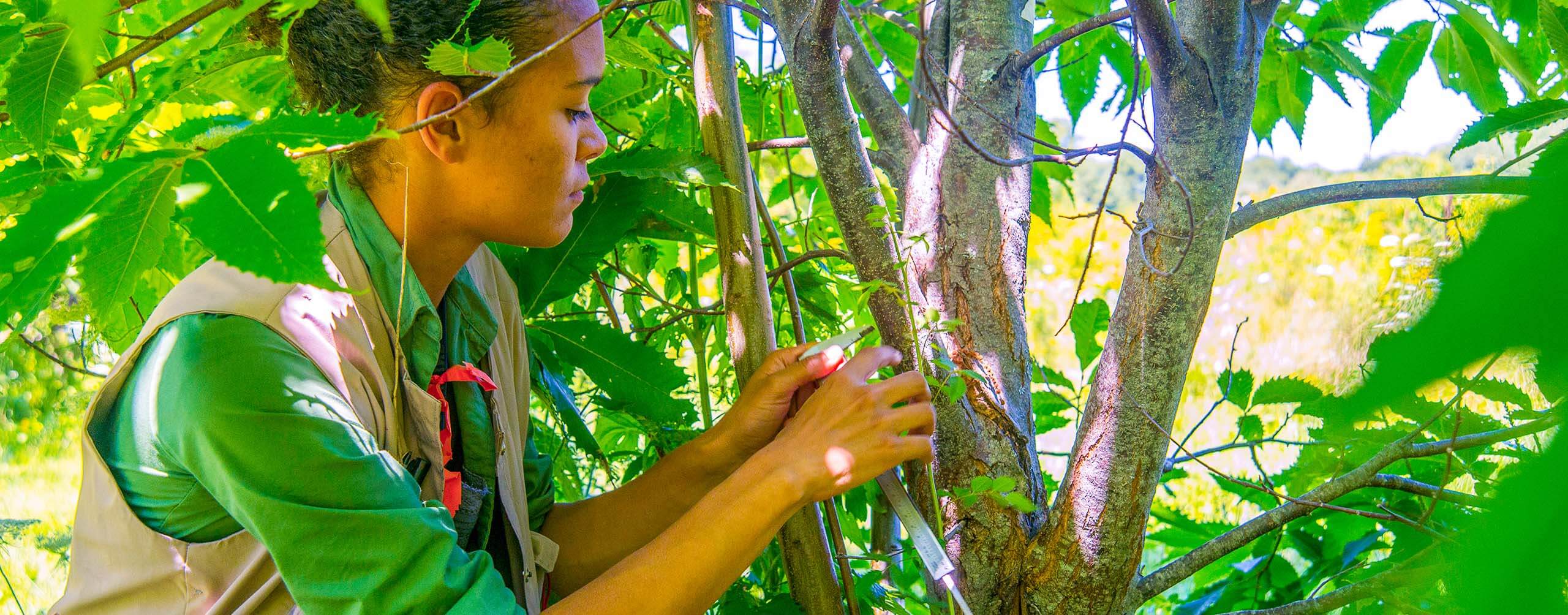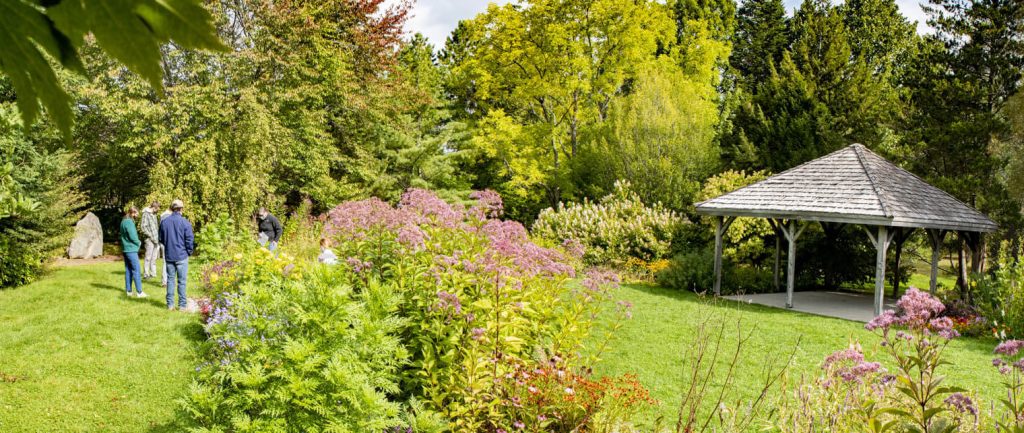
Environmental Horticulture
College of Earth, Life, and Health Sciences
Environmental Horticulture explores the applied science of managing ornamental plants in public or estate gardens, residential landscapes, or greenhouses and plant nurseries. The program offers students the opportunity to gain theoretical knowledge and hands-on experience in landscape design, landscape management, sustainable plant production and maintenance, greenhouse management, plant and soil sciences and other related fields.
UMaine’s Environmental Horticulture Bachelor of Science degree program offers students hands-on practical and theoretical knowledge in plant science and also teaches sustainable and professional practices in landscape design, landscape business and turfgrass management. Course instruction is supplemented with a self-chosen Field Experience, class Field Trips, Independent Projects, Travel Opportunities, a Service-Learning Capstone Project and Volunteer Opportunities.
Students focus their studies according to interest by selecting one of four concentrations. The concentrations offered are sustainable horticulture, landscape design, horticultural business and turfgrass management.
The program provides excellent training in areas important to green industry employers and offers strong preparation for students seeking a graduate degree in plant science or landscape architecture. Students in the Horticultural Business concentration who complete the minor in Business Administration have the option to continue one extra year to complete an MBA program through the Maine Business School.
Our faculty are approachable, encouraging and student-centered. The core classes in our curriculum have a low student to faculty ratio, allowing instructors to engage with undergraduate students and serve as professional mentors. Faculty research programs address current issues in horticulture and undergraduates have the opportunity to participate in the research including but not limited to: cold tolerance; evaluation and introduction of woody and herbaceous ornamental plants; water use efficiency in greenhouse production; potato breeding and production; and sustainable vegetable and small fruit production.
Students with this degree are prepared to enter any sector of the green industry including but not limited to: growers of food, recreational and medicinal cannabis, and ornamental plants for the landscape plant industry; ownership, management and crew leader positions in landscape design, build and maintenance businesses; grounds managers for private estates and public entities;.and agricultural outreach services such as cooperative extension.
Bryan Peterson
Interim Undergraduate Program Coordinator
Deering Hall, Room 418
207.581.2918 | bryan.j.peterson@maine.edu
Environmental Horticulture
College of Earth, Life, and Health Sciences
Deering Hall
207.581.2948

Lyle E. Littlefield Ornamentals Trial Garden
Lyle E. Littlefield Ornamentals Trial Garden is the on-campus resource for plant identification and design labs. Over the last five decades the garden has amassed a collection of over 2,500 woody and herbaceous plants. Major focus collections include lilacs, rhododendrons and magnolias.
